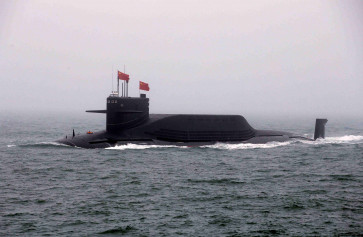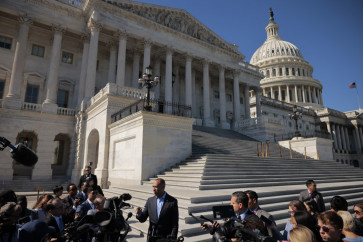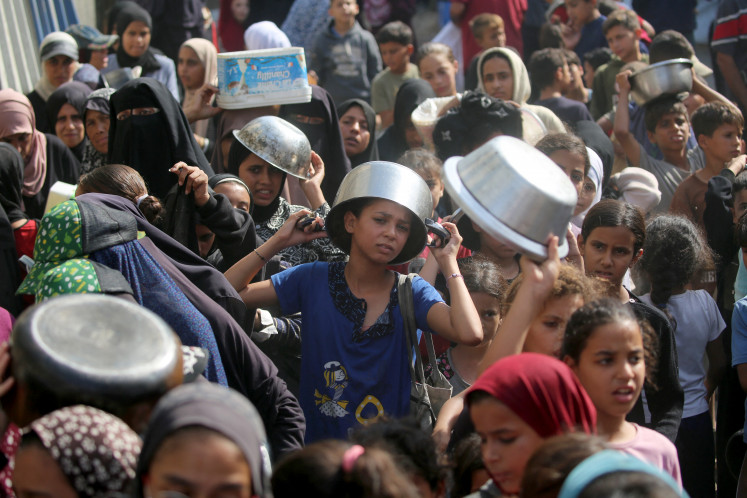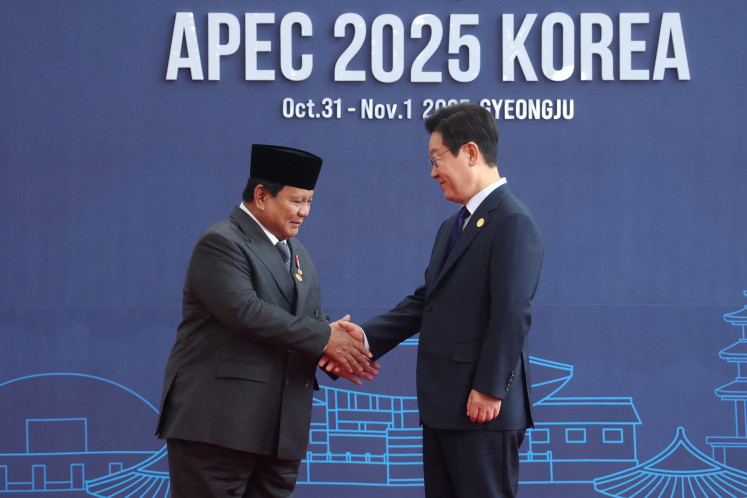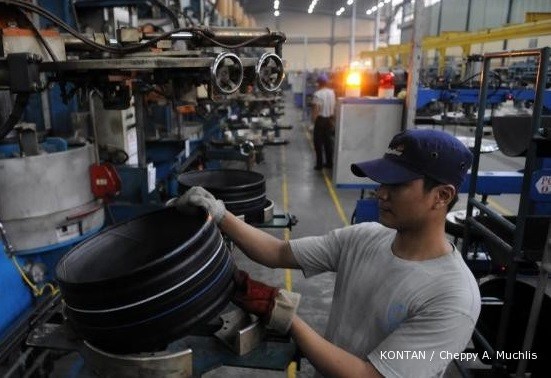Popular Reads
Top Results
Can't find what you're looking for?
View all search resultsPopular Reads
Top Results
Can't find what you're looking for?
View all search resultsWill leaders ride the tide that favors truth about '60s killings?
This month marks the 50th year Indonesia has been ignoring the murder of more than half a million people
Change text size
Gift Premium Articles
to Anyone
T
his month marks the 50th year Indonesia has been ignoring the murder of more than half a million people. The gruesome crimes of 1965 were provoked by Cold War era anti-communist propaganda that the state has yet to dispel.
There has not been an apology, let alone a criminal inquiry, despite a 2012 report by the National Commission on Human Rights (Komnas HAM) declaring that the army was responsible for gross human rights violations. But some officials seem eager to leave 'the past' behind. In July, then military chief Gen. Moeldoko, after a meeting to set up a truth and reconciliation committee for past human rights abuses, said, 'We must not forget, but forgive'.
Victims of the 1965 crimes do not need reminding to not forget that their friends and family members were tortured, raped and murdered by the army and civilian death squads. President Joko 'Jokowi' Widodo, elected by the people based on a human rights platform, should listen to the victims and prevent perpetrator groups from dictating how reconciliation should happen.
Seventeen years have passed since the fall of Soeharto, the general who led the crackdown against communists in 1965. Historical studies and research by academics and civil society groups have since shed light on the army's fabricated tales about Indonesia's communists.
Soeharto blamed the communist party for the killing of six army generals and one junior officer on Oct. 1, 1965. Junior officers of Sukarno's presidential guard calling themselves 'the Sept. 30 movement' ('G30S') had kidnapped and killed the generals to prevent a military coup against the ailing Sukarno's government that they believed would happen on Oct. 5.
Theories abound on the mastermind of the Movement. The latest 2006 study by historian John Roosa claimed that the officers conspired with party leader DN Aidit and a few others. But the rest of the party members and sympathizers who perished most probably had no idea.
History shows that paranoia towards 'the other' can prompt a group of people to stop seeing themselves in the face of others. The Nazi propaganda described the Jews as poisonous mushrooms. The Hutu painted the Tutsi, favored by the Belgians during Rwanda's colonial era, as cockroaches.
In Indonesia, Army propaganda painted communists as immoral bloodthirsty savages ready to take over the nation. As researcher Saskia Wieringa pointed out, among them are stories published in the army newspapers of communist women mutilating the genitals of the kidnapped generals before killing them.
Other countries that have experienced genocide have woken up from their paranoia and acknowledged the harm it brought to their people. Perpetrators were brought to justice. Whether victims forgave them or not wasn't discussed, but empathetic leaders apologized for the crimes regardless of public sentiment. In 1970 German chancellor Willy Brandt kneeled in silence in Poland before a Holocaust monument.
Perhaps Jokowi will not formally apologize this year or revise the history books to include the anti-communist massacre of 1965-1966. Recently the nation's second-largest Islamic organization Muhammadiyah questioned the President over plans to apologize for the 1965 crimes and they got the answer that they wanted.
No ' as the President made clear again on Oct. 1, Pancasila Sanctity Day, at Lubang Buaya, where the
generals were killed.
With resistance from the military and elements of Islamic groups to even acknowledge what happened, let alone apologize, it may seem that many prefer that no real change occur. But after decades of silence, more people inside and outside Indonesia are becoming aware of what happened and are talking about this more openly and objectively.
A group of human rights activists are preparing an International People's Tribunal for the 1965 crimes in The Hague, Netherlands, bringing attention from local and international media. Indonesian novelists writing with the setting of 1965 are becoming focused on in the upcoming Frankfurt Book Fair, the world's biggest book festival.
In covering the 50th year of the massacre, local and international mainstream media are no longer silent, which shows where the tide is heading. Sindonews recently published the history of how 'communist women' were slandered by the army. BBC Radio recently aired an interview of a descendant of killers perplexed by the cruelty of his uncle. Deustche Welle Indonesia published an interview with writer Martin Aleida who was imprisoned during the pogroms, and a profile of Soeharto on how he took advantage of the coup to rise to power.
In our digital age, it will be difficult to hide the truth, especially from the generation born after 1965.
In time, the tide will favor the truth and victims of the 1965 crimes. Experience tells us that the future will not be kind to those who stubbornly stand on the wrong side of history. Our present leaders have the choice whether they will ride the tide or be swept away by it.
______________
The writer is a Jakarta-based journalist and an editor for The Conversation. She writes here in a personal capacity.



